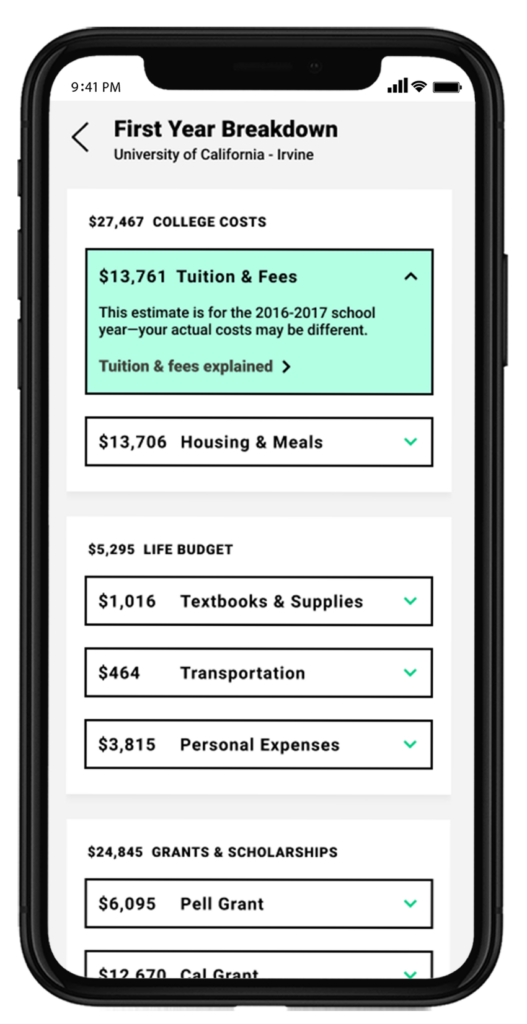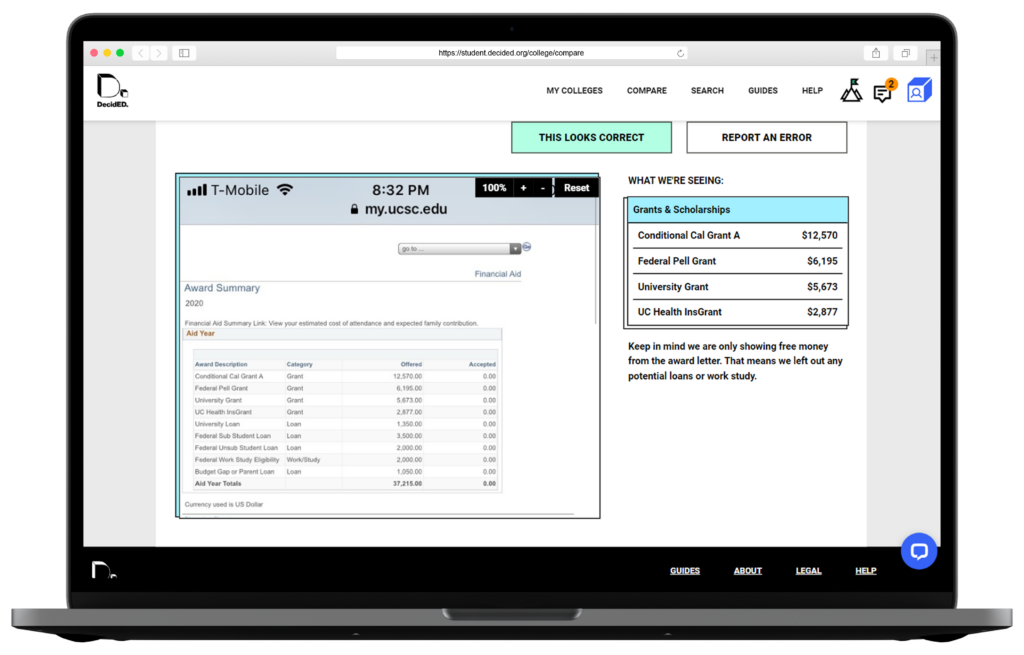Tuition and Fees Explained
Learn about college costs and the costs you’ll see on your bill
Tuition and fees are the cost of taking classes at your college.
This amount can change based on your academic program, the number of credit hours you take, and whether you’re an in-state or out-of-state student. Some colleges charge “comprehensive fees” — the total for tuition, fees, and room and board combined.
When you search and add a college to DecidED for the first time, the tuition and fees are estimated based on a prior school year.
When you upload your award letter to DecidED, the tuition and fees are closest to your actual costs.
What you pay for tuition and fees are added to your books and supplies, room and board, and other expenses to give you your total cost of attendance.
Different colleges have different fees
Total costs will vary and can depend on your choice of study, the campus,and whether or not you go to school in your state of residence.There may be additional campus fees to pay for resources like health facilities, materials services, and your student center. Some fees are mandatory.
Tip: Fees may be campus-based and campus-controlled to enhance the quality of academic programs and the student experience on campus.


What to look for in your financial aid letter
Tuition is charged to all registered students. Tuition includes costs related to general campus faculty and instructional support, libraries, student services, and grounds and facilities (buildings, fountains, parking, etc.), among other things.
If you are a resident of the state, you will pay resident (“in-state”) tuition. If you are attending a college out of state, you will pay nonresident tuition, which is often higher than what residents pay.
- Student service fees are charged to all registered students. These fees are often spent on student services like counseling and career guidance, cultural and social activities, and student health services.
- Campus level fees are charged to students registered to a specific campus and/or program. These fees help fund programs such as student government and recreational facilities. There may also be fees for course materials to cover costs specific to a course or lab.
- Health insurance is a mandatory fee for many colleges. However, you can waive this fee with proof of other insurance.
Will fees be different due to Covid-19?
The impact of COVID-19 will be different from campus to campus so be sure to review your financial aid award letter carefully and ask your financial aid office if you need any support.
Tip: For many campuses and institutions, tuition and mandatory fees will not be affected regardless of the method of instruction. You also will not be able to get a refund in the event that instruction occurs remotely for any part of the academic year.
Learn more about college costs in our guides.








